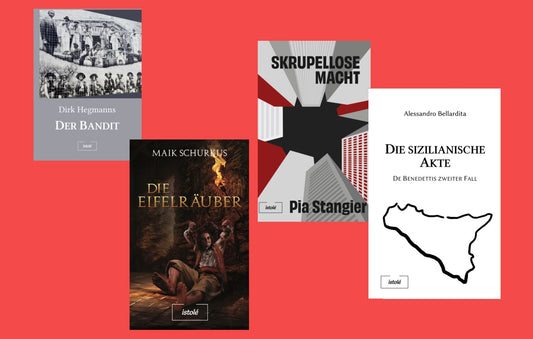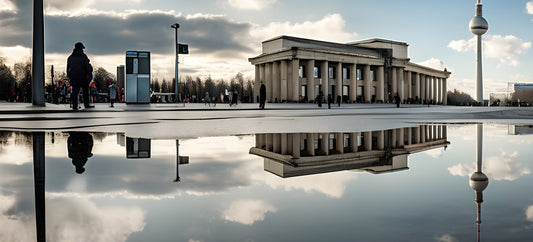Heike Wolff, with your new novel you enter Bronze Age Crete and deal with exciting shifts in the social and political structure of the Aegean region. Minoan palace society itself was also simmering at the time. In what environment does the main actress Ide, the daughter of the Archon of Phaistos, work?

In 1455 B.C. In the 4th century BC, the people of Phaistos suffer from famine and the effects of the volcanic eruption of Thera, which destroyed large parts of the once proud merchant fleet. Ide, the archon's sheltered daughter, dreams of following in her father's footsteps and leading the empire of Phaistos to new prosperity as queen. She loves Geros, the captain of the fleet, and wants to marry him so that she can rule with him. One circumstance clouds Ide's happiness: her older sister Pareia, the high priestess of Phaistos, sows doubts about the sincerity of Geros in Ide's heart.
What plans does the aged Archon have as a champion of a convenient alliance with the Achaeans?
Ide's father has other plans, because the Achaeans are gathering on the Greek mainland and want to take control of the Mediterranean. Ide is supposed to marry Agathon, the prince of Pylos, in order to bind Phaistos to the Achaeans in a strong alliance and thus forestall war.
How does Ide take a position on this issue?
A world collapses for Ide: her father cannot be changed, Pareia supports him unconditionally and even Geros thinks the plan is a good idea given the threat. Ide wants to fight for her love and her dream, but Geros stands in her way and puts his loyalty to Phaistos above her love.
An exciting plot that is historically embedded.
The Minoan culture still holds many secrets. There are no written documents that we can understand. Everything we know is based on archaeological finds and stories from other peoples, such as the Egyptians. Different researchers put forward different hypotheses about why this highly developed culture perished. Ide's story attempts to provide an answer to this.

What explains your love for the topic of Crete?
I grew up in the former GDR. The legends of Heracles and the Odyssey awakened my longing for the vastness and specifically the desire to get to know Greece when I was a child. When I traveled to Crete for the first time after reunification, I was enchanted by this country, its people and its history. Or to put it in the words of Nikos Kazantzakis: Anyone who sets foot on this island feels a strange power penetrate their veins and expand their soul.
I can see from your iter vitae that you have delved into historical themes for the first time in this novel. What do your short texts “about the here and now” deal with?
These texts are as colorful as life. Everything is included, from literary travel experiences, from Greece of course, to political and socially critical texts such as the story of a woman who is abused by her husband or about the federal election. The experiences of my now 86-year-old mother and her view of our modern world are also a bubbling source.
To what extent do autobiographical hurdles that you try to overcome play a role in your writing?
My writing is not primarily intended to address personal issues. Nevertheless, every text resonates with one's own experience and one's own feelings, including my Minoan novel. I'm more of a writer who keeps a certain distance from her protagonists. They are not alter egos, they are somewhat strange acquaintances or, at best, good friends. My intention is to entertain the reader, give them a good time and perhaps give them a new perspective on a topic.
Back to Ide. The frame narrative describes how Ide, an old woman in exile, tells her life story to a captain in order to obtain a final passage to Crete. How did this exile come about?
From a purely literary point of view, I like it when a first-person narrator like Ide has a reason to tell her life story and it doesn't just stand in the room in isolation. In addition, the retro perspective, the memory of her life, offered the fascinating opportunity to let the old Ide evaluate her experiences as a young woman. Readers will have to find out for themselves what caused her to look longingly out to sea north in North Africa.
The interview was conducted by Christian Leeck. Machine translated from German.
Wuppertal, October 2022.




